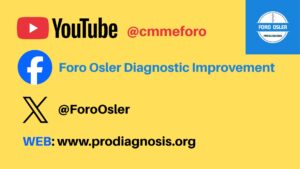Can we “suspect” a diagnosis “in advance”?

Could we make a diagnosis “before” the devastating consequences of a subarachnoid hemorrhage? Can we make an early diagnosis of cancer only using the symptoms and signs of a person? The NHS in United Kingdom has established a four weeks period of time after a suspicion of cancer for a definitive diagnosis, but how a doctor can get this “suspicion”?
We believe that this situation that we call “prediagnosis” can be achieved through a combination of intuition, professionalism, clinical prediction rules, patient engagement, clinical experience and a proper evaluation of the signs and symptoms of the patient. This concept overlap with others well defined such as “early diagnosis” or ” diagnostic delay” , two definitions what are defined based on the outcome. Prediagnosis in summary try to put a name to this period of time where we can act in a prospective way to avoid an important harm to the patient. In a first approach we could expose the different components of this concept to improve the diagnostic process.
| Dimension | Action | Outcome |
| Intuition | To be aware. Improve clinical reasoning | Increase sensitivity |
| Professionalism | Follow clinical method | Better detection |
| Clinical prediction rules | Define variables with statistical significance | Select a population for more testing |
| Patient engagement | Active participation | Broad diagnostic possibilities |
| Signs and symptoms | Establish a practical combination of data. | Better predictive value |


